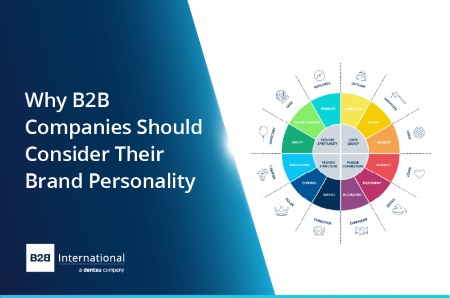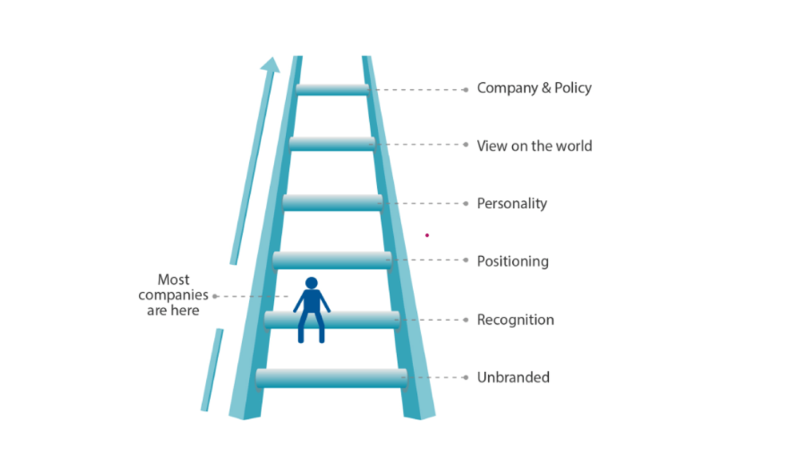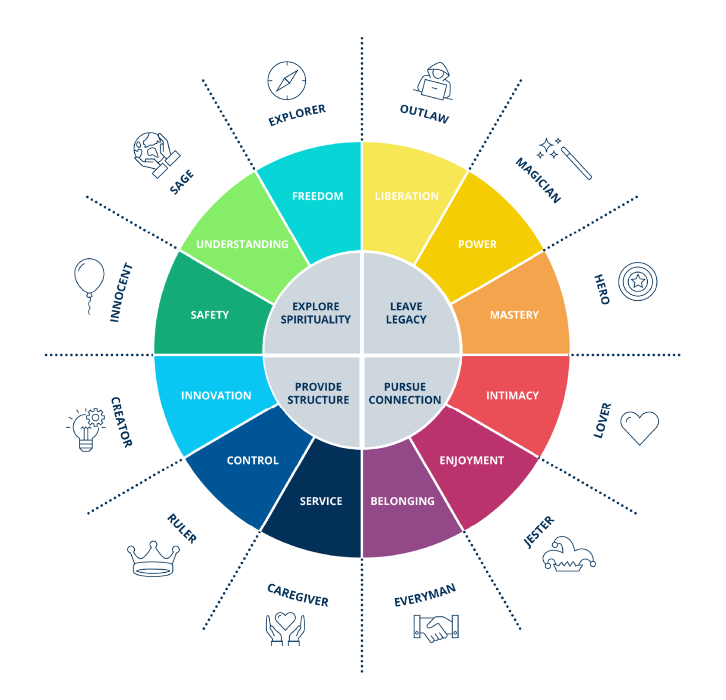
Marketers’ awareness of the importance of brands in purchasing decisions is growing. A strong brand allows us to avoid price wars and convince buyers through aspects that go beyond the usual product/service purchase criteria. With a strong brand, we can also retain our existing customers and build deeper business relationships. Therefore, the brand is one of the most important assets of a company, supporting sales and renewals and providing further financial benefits through brand licensing, franchising, etc.
For this reason, many companies are working to create a stronger brand. Our global study with B2B decision-makers, the 2024 Superpowers Index, shows that in an increasingly intense competition for customers, the brand is more important than ever, and brand building has become the highest priority for B2B marketers.
The brand ladder helps illustrate where brands are in their journey. While most B2B brands are in the recognition stage, we observe that stronger brands manage to position themselves clearly in the market and differentiate from the competition, at least in terms of a clearly differentiated offering. However, a large majority fails in the development of a brand personality.

A strong, engaging, and relevant personality offers many advantages for a company. The personality can help:
- Distinguish the brand from the competition
- Build an emotional connection beyond the primary decision maker
- Make the brand more memorable
- Attract new customers
Before showing the brand’s personality externally, a strategic decision must be made on how a brand wants to be perceived. The personality must:
- Align with the existing company and employee culture
- Consider how the brand may want to evolve in the future
- Be engaging and relevant to current and potential customers
- Be relevant to society, as brands nowadays seek to have significance and influence outside their industry

Carl Jung’s framework with twelve ‘Brand Personality Archetypes’ serves as a very good template. The archetypes are derived from four categories defined by their primary motivations:
- Provide structure: Stability, control, and discipline
- Pursue connection: Belonging, enjoyment, and engagement
- Leave legacy: Risk, mastery, reward
- Explore spirituality: Independence, fulfilment, values

While all personality types can be found among B2C brands, B2B brands are more often characterized by the following personality types: Creator, Ruler, Caregiver (all personalities from the ‘Provide structure’ category), as well as Sage (Explore spirituality), Everyman (Pursue connection), and Hero (Leave legacy). The latter is especially visible in industries or product categories related to climate protection.
However, it strongly depends on the product category whether the company dares to choose more ‘courageous’ personality types, such as ‘Lover’. What might be difficult to imagine for medical devices could potentially work well for craftsmen, etc.
It is also important that the framework provides guidelines but does not limit, and it’s entirely possible to claim a mix of two personalities.
Market research can support companies in the process of personality development at different stages:
-
Firstly, in developing a clear personality, in-depth conversations with stakeholders (management, employees, investors) as well as customers or potential customers can help identify which personality types might be considered.
-
If certain brand personalities are considered, they can be tested or evaluated qualitatively (for optimization) or quantitatively (for final selection) at a later stage.
-
Regularly conducted brand studies help measure whether the brand personality strategy has successfully reached and engaged customers, potential customers, employees, and other important target groups. They also help determine where our competition stands, whether we differentiate ourselves sufficiently from them, and whether market expectations of brands have changed.
A strong personality that appeals to the emotional needs of the market not only benefits a company financially but also strategically within its industry and broader society, becoming a highly valuable asset worth protecting and building upon.
Readers of this article also viewed:
The 2025 Superpowers Index How to Measure Brand Performance with the Brand Health Wheel The Value Equivalence Framework: A Simple but Powerful Questioning Technique Employer Branding: Why It’s Important and What It Takes to Build a Strong Employer Brand B2B Thought Leadership: Why It’s Important & How to Do It Well B2B Insights Podcast #65: Common Myths and Misconceptions with Brand Research How Market Research Can Help Enhance Brand Communication in B2B
To discuss how our tailored insights programs can help solve your specific business challenges, get in touch and one of the team will be happy to help.

